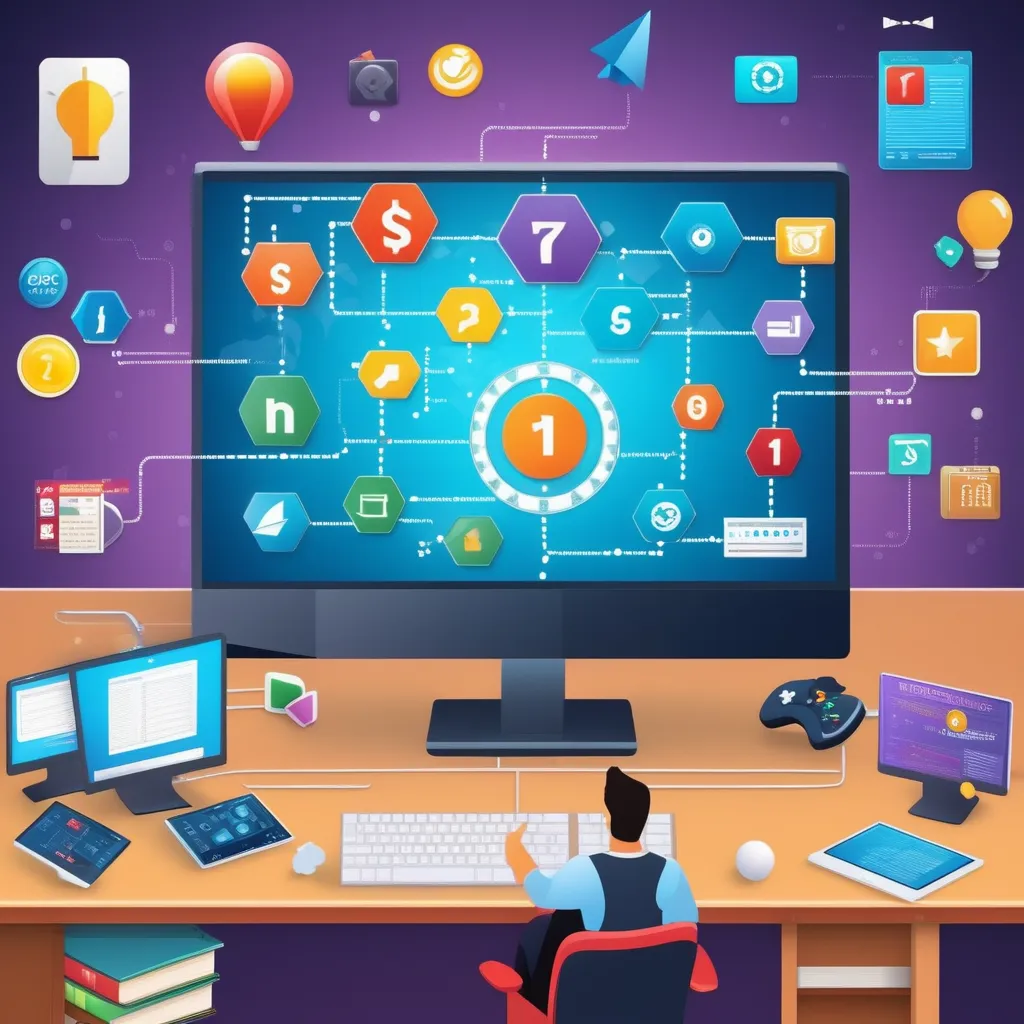The Role of Gamification in Education and Training
Remember the excitement of playing your favorite video game as a child, navigating through challenges, and celebrating each small victory? What if that same sense of engagement and enthusiasm could be harnessed for educational and training purposes? Welcome to the world of gamification—a powerful tool that is revolutionizing the way we learn and develop skills. In this article, we'll explore the role of gamification in education and training, sharing personal insights along the way.

My Introduction to Gamification
My journey into the world of gamification began when I decided to learn a new language. Traditional language textbooks and classes left me feeling uninspired, and my motivation waned. That's when I stumbled upon a language learning app that gamified the entire experience.
Suddenly, learning felt like a thrilling adventure. Points, badges, and levels turned what was once a chore into an exciting quest.
Understanding Gamification
Gamification involves incorporating game-like elements and principles into non-gaming contexts. In the realm of education and training, it has proven to be a game-changer:
1. Engagement
Games are inherently engaging, and gamification captures that engagement. It makes learning fun, motivating individuals to actively participate.
2. Motivation
Gamification leverages intrinsic and extrinsic motivation. Achievements, rewards, and friendly competition can drive learners to achieve their goals.
3. Feedback
Games provide immediate feedback, and so does gamification. Learners can see their progress, understand their strengths and weaknesses, and adjust their approach accordingly.
4. Personalization
Gamification allows for personalized learning experiences. Learners can choose their path, pace, and areas of focus, making education more tailored to individual needs.
Applications in Education
Gamification is making waves in the education sector:
1. Classroom Learning
Teachers are using gamified elements to make traditional lessons more engaging. Quiz games, leaderboards, and interactive activities promote active participation.
2. eLearning
Online courses and platforms often incorporate gamification. Learners earn badges, complete challenges, and track their progress, enhancing their eLearning experience.
3. Language Learning
As in my personal experience, language learning apps employ gamification to make acquiring a new language enjoyable and effective.
4. STEM Education
Science, technology, engineering, and mathematics (STEM) subjects can be challenging. Gamification makes these subjects more approachable, encouraging students to explore and learn.
Benefits in Training and Development
Beyond education, gamification is transforming training and development:
1. Corporate Training
Companies are using gamified training modules to onboard employees, enhance soft skills, and improve job-specific competencies.
2. Healthcare Training
Healthcare professionals use gamification to practice procedures and improve patient care. It offers a safe and engaging way to develop critical skills.
3. Skill Development
From learning to code to acquiring new culinary skills, gamified platforms make skill development accessible and enjoyable.
Challenges and Considerations
While the benefits of gamification are clear, challenges exist. Designing effective gamified experiences requires careful planning to ensure they align with educational objectives. Balancing fun and learning can be a delicate task.
The Future of Learning and Training
As technology continues to advance, the role of gamification in education and training will only grow. Virtual reality (VR), augmented reality (AR), and artificial intelligence (AI) will further enhance gamified experiences, making learning and skill development even more immersive and effective.
Reflecting on my language learning journey, I'm reminded of the power of gamification to transform education and training from a mundane task into an exciting adventure. It's a tool that has the potential to unlock the full potential of learners and professionals alike.<

No comments:
Post a Comment